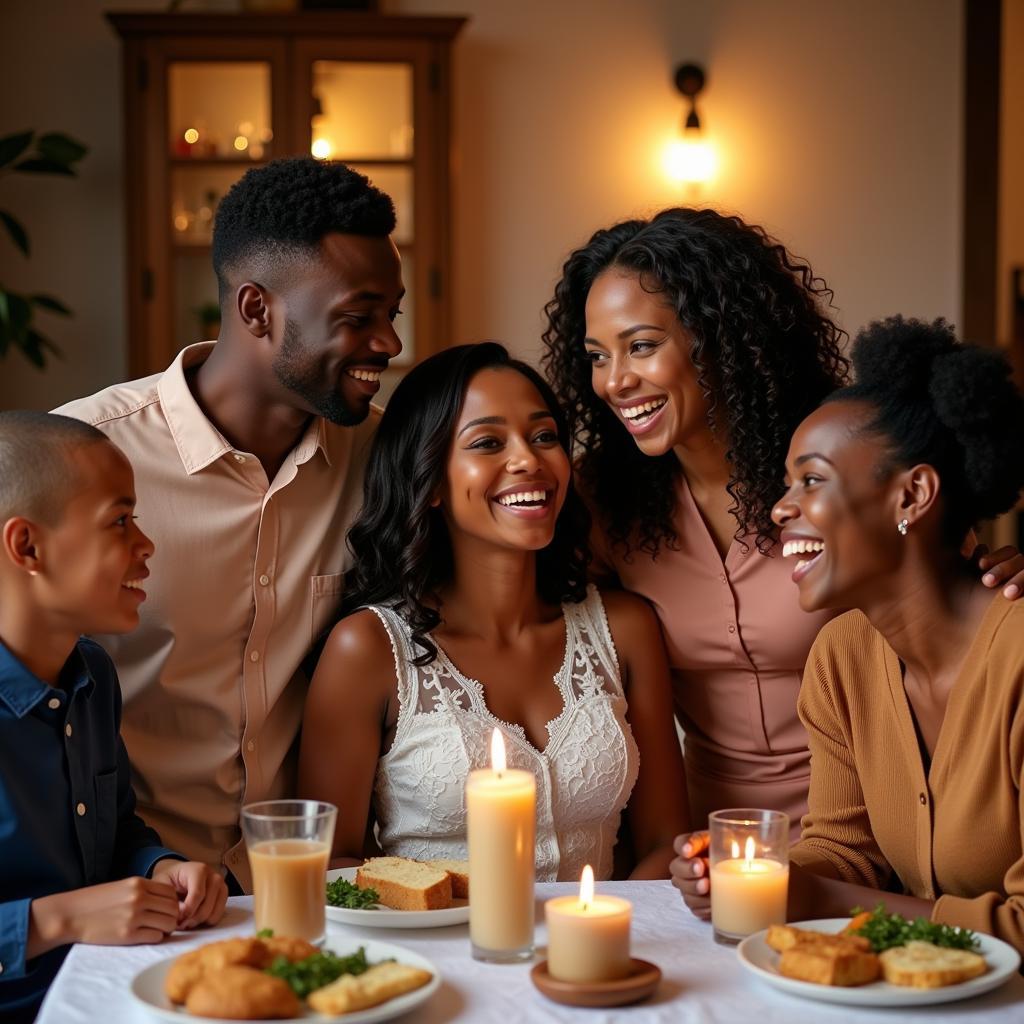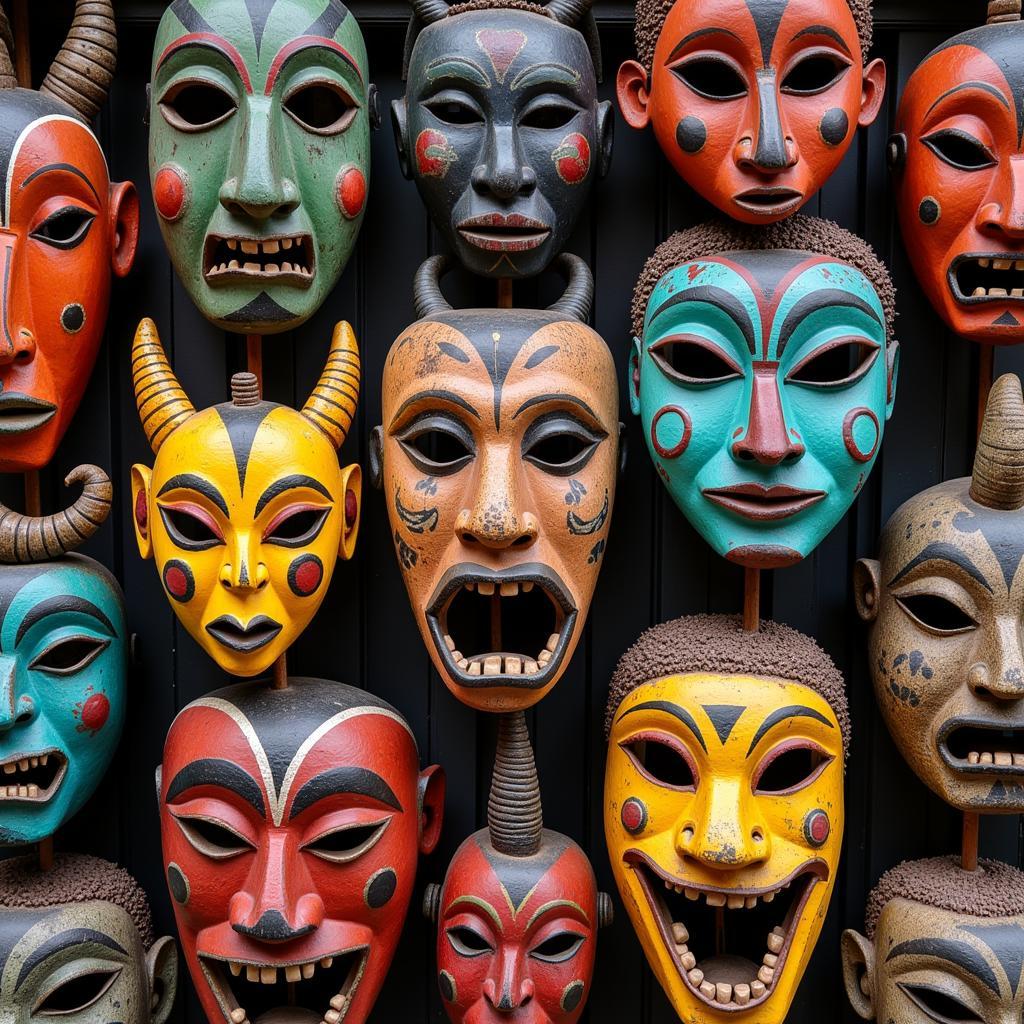Exploring African Culture and Traditions Essay
African culture and traditions are a vibrant tapestry woven from the threads of diverse communities across the continent. From ancient rituals to modern artistic expressions, understanding these traditions offers a glimpse into the rich history and complex social fabric of Africa. This essay will delve into the heart of African culture and traditions, exploring their significance and evolution.
The Heart of African Culture and Traditions
African traditions are often deeply rooted in oral history, passed down through generations through storytelling, songs, and proverbs. These narratives not only preserve historical events but also impart moral lessons, social values, and cultural identity. For example, many communities have elaborate coming-of-age ceremonies that mark the transition from childhood to adulthood, instilling important life lessons and responsibilities. These traditions are not static; they adapt and evolve with time, reflecting the changing social landscape and influences from within and outside the continent. The core values, however, often remain, providing a sense of continuity and connection to the past.
African art is another powerful expression of cultural identity. Sculptures, masks, textiles, and pottery often carry symbolic meaning, representing spiritual beliefs, social status, or historical events. The intricate patterns and vibrant colors found in African art reflect the creativity and ingenuity of the artists, who often use locally sourced materials and traditional techniques. Music and dance play a vital role in many African societies, accompanying ceremonies, rituals, and celebrations. The rhythmic beats and melodic harmonies of African music are infectious, creating a sense of unity and shared experience.
After this detailed look at African art, you may want to explore different sentence structures in African language sentences.
The Diversity of African Traditions: A Regional Perspective
It’s crucial to remember that Africa is not a monolithic entity. The continent comprises 54 countries, each with its unique blend of cultures and traditions. For instance, North African cultures, influenced by Islamic traditions, often differ significantly from the customs practiced in sub-Saharan Africa. From the nomadic Berber tribes of the Sahara to the ancient kingdoms of West Africa, the continent offers a kaleidoscope of cultural experiences. While certain themes, such as respect for elders and the importance of community, resonate across many African societies, the specific ways in which these values are expressed can vary greatly. Understanding this diversity is key to appreciating the richness and complexity of African culture and traditions.
African Culture in the Modern World: Preservation and Evolution
In today’s globalized world, African culture and traditions face the challenge of preserving their heritage in the face of modernization and external influences. Many communities are actively working to maintain their cultural identity through education, cultural festivals, and the promotion of traditional arts and crafts. At the same time, African culture continues to evolve, incorporating new influences and adapting to the changing times. This dynamic interplay between tradition and modernity creates a vibrant cultural landscape, ensuring that African culture remains a vital force in the 21st century. For those interested in influential figures, you can explore African biggest name.
Dr. Adebayo Olajide, a renowned anthropologist specializing in West African cultures, emphasizes the importance of this evolution, stating, “African traditions are not relics of the past; they are living, breathing entities that continue to shape the present and future.” This sentiment is echoed by many young Africans who are embracing their cultural heritage while also forging new paths for themselves in the modern world.
The Impact of the African Diaspora
The African diaspora, the dispersion of Africans across the globe, has also played a significant role in shaping African culture and its perception worldwide. From the Americas to Europe and Asia, African communities have carried their traditions with them, adapting and blending them with the cultures of their new homes. This cross-cultural exchange has led to the creation of unique hybrid cultures, enriching the global cultural landscape. If you are interested in exploring literature related to this topic, check out African diaspora literature syllabus.
Professor Fatima Mokoena, a historian specializing in the African diaspora, notes, “The African diaspora is a testament to the resilience and adaptability of African culture. It demonstrates how traditions can transcend geographical boundaries and continue to thrive in new environments.”
Conclusion
African culture and traditions are a vast and complex subject, offering a window into the diverse experiences and rich history of the continent. From ancient rituals to modern artistic expressions, these traditions provide a sense of identity, community, and connection to the past. While facing the challenges of modernization and globalization, African cultures continue to evolve and adapt, ensuring their continued vibrancy in the 21st century. Exploring and understanding African culture and traditions is essential for appreciating the richness and diversity of human experience. Perhaps you might be interested in African American p.
FAQ
- What are some common themes found in African traditions?
- How does African art reflect cultural values?
- What is the role of music and dance in African societies?
- How has the African diaspora influenced African culture?
- What are some challenges facing African cultures in the modern world?
- How are African communities working to preserve their cultural heritage?
- What are some examples of traditional African ceremonies and rituals?
Common Situations and Questions
- Situation: You are researching African cultures for a school project. Question: Where can I find reliable information about specific African countries and their traditions?
- Situation: You are planning a trip to Africa. Question: What are some important cultural customs to be aware of?
- Situation: You are interested in learning more about African art. Question: Where can I find examples of traditional and contemporary African art?
Further Exploration
You might also be interested in exploring African folktales and mythology, or learning more about the impact of colonialism on African societies.
Call to Action
For any further assistance or inquiries, please contact us at Phone: +255768904061, Email: kaka.mag@gmail.com or visit us at Mbarali DC Mawindi, Kangaga, Tanzania. We have a 24/7 customer service team.


